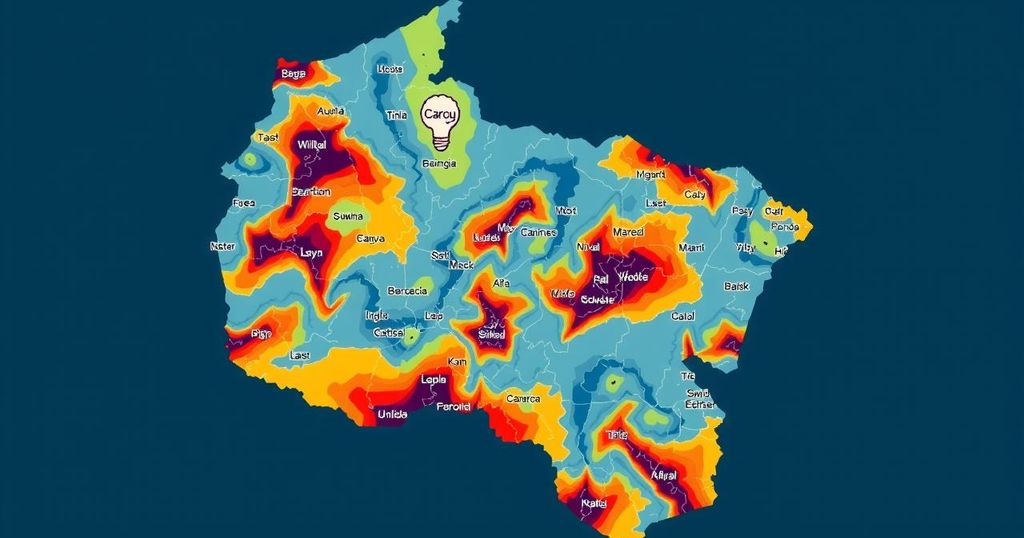This study evaluates the effects of short-term weather shocks on poverty in Paraguay, finding significant income reductions and increased poverty levels due to heat shocks, particularly impacting rural areas and female-headed households. Flood events mainly affect urban poverty rates. The analysis underscores regional disparities and the need for tailored adaptation strategies to support vulnerable communities.
The study titled “Weathering Shocks: Unraveling the Effects of Short-Term Weather Shocks on Poverty in Paraguay” investigates the relationship between climate-related shocks and poverty in Paraguay, highlighting the stagnation of poverty reduction since 2014. This research employs household survey data, climate temperature records, and precipitation data spanning from 2004 to 2019. The analysis reveals that heat shocks significantly reduce household incomes by 5 percent in urban regions and up to 8.8 percent in rural areas. Furthermore, such climatic disturbances exacerbate poverty rates, with increases of 1.7 percentage points in urban locales and 4.2 in rural settings. Floods predominantly impact urban households, with a consequent rise in poverty by 1.9 percentage points. The vulnerability varies across regions and demographics; for instance, female-headed rural households are particularly susceptible to heat shocks, while agricultural households are most affected by both heat and drought situations. Overall, these findings underscore the urgent need for tailored adaptation strategies and climate risk management initiatives to support vulnerable populations and enhance resilience throughout Paraguay.
The phenomenon of climate change has increasingly been recognized as a significant contributing factor to economic challenges, particularly in developing nations like Paraguay. Since 2014, Paraguay has observed little progress in poverty alleviation, correlating this stagnation with a decline in economic growth attributed to multiple climate-related events. Understanding how these short-term weather shocks impact vulnerable populations is critical for formulating effective policy responses. By analyzing data on income and poverty alongside climatic conditions, this study aims to shed light on the nuanced impacts of weather fluctuations on different segments of the population, ensuring that interventions can be designed with precision and empathy.
The research findings reveal a concerning relationship between short-term weather shocks and poverty levels in Paraguay, accentuating the disproportionate impact on specific groups, especially female-headed households in rural contexts. The documented income reductions associated with heat shocks and rising poverty rates in both urban and rural areas underscore the urgent need for climate adaptation strategies. This study advocates for tailored approaches that address the particular vulnerabilities of affected populations, ultimately contributing to enhanced resilience in the face of climate variability.
Original Source: reliefweb.int






